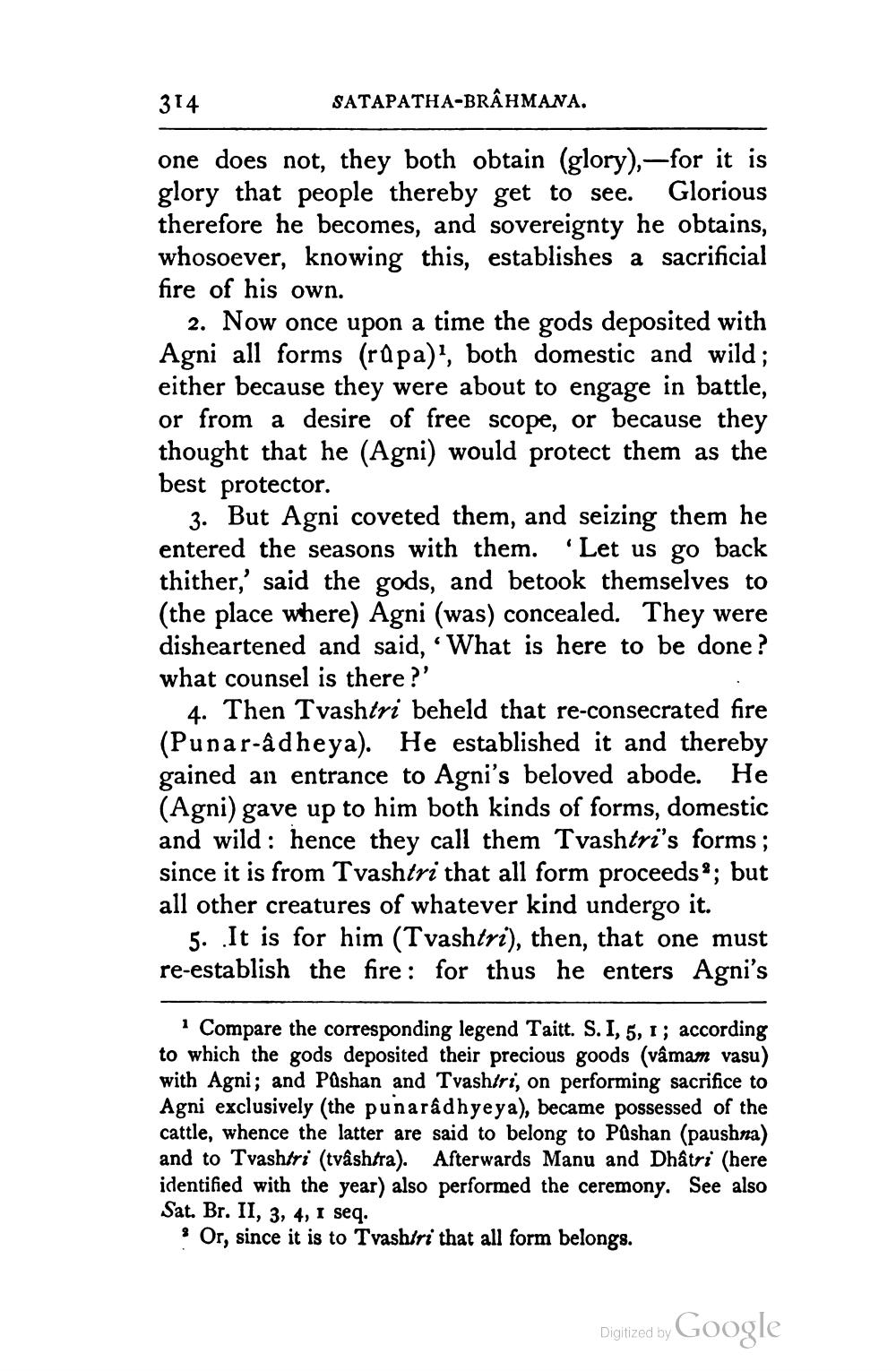________________
314
SATAPATHA-BRAHMANA.
one does not, they both obtain (glory),—for it is glory that people thereby get to see. Glorious therefore he becomes, and sovereignty he obtains, whosoever, knowing this, establishes a sacrificial fire of his own.
2. Now once upon a time the gods deposited with Agni all forms (rapa)', both domestic and wild; either because they were about to engage in battle, or from a desire of free scope, or because they thought that he (Agni) would protect them as the best protector.
3. But Agni coveted them, and seizing them he entered the seasons with them. "Let us go back thither,' said the gods, and betook themselves to (the place where) Agni (was) concealed. They were disheartened and said, 'What is here to be done? what counsel is there?'
4. Then Tvashtri beheld that re-consecrated fire (Punar-adheya). He established it and thereby gained an entrance to Agni's beloved abode. He (Agni) gave up to him both kinds of forms, domestic and wild: hence they call them Tvashtri's forms; since it is from Tvashtri that all form proceeds ; but all other creatures of whatever kind undergo it.
5. It is for him (Tvashtri), then, that one must re-establish the fire: for thus he enters Agni's
i Compare the corresponding legend Taitt. S. I, 5, 1; according to which the gods deposited their precious goods (vâmam vasu) with Agni; and Pashan and Tvashtri, on performing sacrifice to Agni exclusively (the punarâdhyeya), became possessed of the cattle, whence the latter are said to belong to Pashan (paushna) and to Tvashtri (tvâshtra). Afterwards Manu and Dhâtri (here identified with the year) also performed the ceremony. See also Sat. Br. II, 3, 4, 1 seq.
: Or, since it is to Tvashiri that all form belongs.
Digitized by Google




